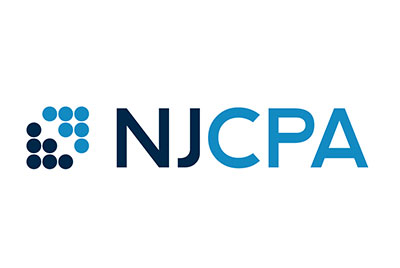CPAs Are More Optimistic About National Economy Than New Jersey’s
–
July 24, 2024

Survey Respondents Cite Business-Friendly
Moves as Needed Improvements
The New Jersey Society of Certified Public Accountants’ (NJCPA) economic survey of more than 500 members in June revealed a relatively guarded stance on New Jersey’s economy for the second half of 2024 and a more positive take on the national economy. An equal number of respondents (43%) expected New Jersey’s economy to stay the same over that time as expected it to become worse, but when asked about the national economy nearly 50% anticipated economic conditions to remain about the same and 34% expected it to be worse.
In general, most respondents (74%) suggested that reducing burdensome regulations would help improve the business environment, followed by lowering interest rates (56%) and cutting the corporate tax rate (43%).
“These insights are a telling sign that our state and national economic conditions need to improve. We want businesses moving into New Jersey, bringing offices and jobs here and that means helping businesses to remain competitive and grow to their potential,” said Aiysha (AJ) Johnson, MA, IOM, CEO and executive director at the NJCPA. “Our member CPAs, well-versed in how businesses operate, are strategic advisors and willing to be a resource to the New Jersey Legislature when considering the impact of regulations on businesses.”
Respondents noted that New Jersey should be “more business-centric,” and according to one responder, the state government should look for ways to invest in the business community with grant programs or the use of its surplus to fund the Unemployment Insurance Trust Fund. In other comments, respondents noted that excessive unfunded state government pension obligations would likely cause New Jersey taxes to increase over the next 10 years.
The three main challenges facing respondents this year include inflation (57%), followed by political disfunction in Trenton (53%) and, like last year, finding the right employees (47%) to hire. They also echoed concerns that many businesses are facing in the state, such as corporate vacancy rates and the high cost of medical and other insurance rates. In general, they called for less investment in social welfare programs. Overall, nearly 80% of respondents believed the fiscal health of New Jersey was either fair (44%) or poor (34%) compared with 19% saying it was good and 3% considering it excellent.
Governor Murphy’s Corporate Transit Fee (CTF) was a particular sticking point for survey respondents. More than 65% noted they were either “very concerned” or “somewhat concerned” about the CTF. They believed that the fee would hurt their clients, even though the fee will only directly tax the 600 largest companies in the state. The NJCPA has expressed its disappointment with this fee.
When asked whether they had ever advised an individual client living in New Jersey to consider relocation, 63% said they had compared with 37% who had not. More than 50% advised a New Jersey-based business client to consider relocation due to the high cost of doing business.
Additionally, 59% saw an increase in the number of high-income clients who file as non-residents of New Jersey, compared with 23% who had not. Similarly, 65% said they saw a decrease in the number of high-income clients who have residency in New Jersey currently. According to one responder, “increasing taxes on a shrinking tax base is unsustainable and disastrous for the state.”